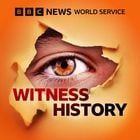In July 1989, Pink Floyd played a free concert to 200,000 people in Venice, Italy. The British rock band took to a stage made of floating barges as crowds of fans watched from boats, gondolas and rooftops. The show was also broadcast worldwide to an estimated 100 million viewers in over 20 countries.
But, behind the scenes, the gig was marred by controversy. Concerns about crowd numbers and the potential damage the noise could do to the city’s historical buildings nearly saw the show called off. But no one could have predicted it would bring down the city’s politicians.
Italian music promoter, Fran Tomasi, who worked with the band and came up with the idea for the show, talks to Emma Forde.
Eye-witness accounts brought to life by archive. Witness History is for those fascinated by the past. We take you to the events that have shaped our world through the eyes of the people who were there.
For nine minutes every day, we take you back in time and all over the world, to examine wars, coups, scientific discoveries, cultural moments and much more.
Recent episodes explore everything from the death of Adolf Hitler, the first spacewalk and the making of the movie Jaws, to celebrity tortoise Lonesome George, the Kobe earthquake and the invention of superglue.
We look at the lives of some of the most famous leaders, artists, scientists and personalities in history, including: Eva Peron – Argentina’s Evita; President Ronald Reagan and his famous ‘tear down this wall’ speech; Thomas Keneally on why he wrote Schindler’s List; and Jacques Derrida, France’s ‘rock star’ philosopher.
You can learn all about fascinating and surprising stories, such as the civil rights swimming protest; the disastrous D-Day rehearsal; and the death of one of the world’s oldest languages.
Thanks to Granada International /RaiUno/Promoproductions, Inc.
(Photo: Pink Floyd performing in Venice. Credit: Andrea Pattaro)


